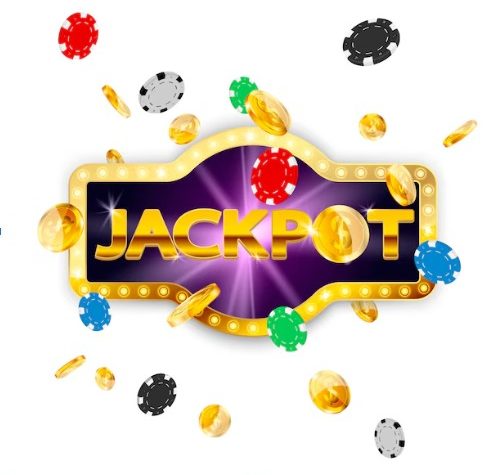
Maduro Clings to Power – Is Venezuela’s Economy Now Collapsing?
Nowhere else has oil like Venezuela, but it is one of the poorest countries in South America. Where is the economy going now that the dictator Maduro does not want to leave the regime?

Venezuelan President Nicolás Maduro sits in his palace in front of a portrait of independence hero Simon Bolivar, three days after a disputed presidential election.
Photo: Matias Delacroix (AP Photo)
When EU foreign affairs chief Joseph Borrell assessed the situation in Venezuela on Monday, it was an urgent warning on the one hand but a major understatement on the other. Elections were held three weeks ago in the South American country. All reputable opinion polls have predicted a clear victory for the opposition.
However, it was in the end Nicolás Maduro declared victoryThe head of state ruled the country with an iron fist for more than a decade. No evidence has been presented, and as long as it remains intact, EU foreign policy chief Borrell warned, the international community will not be able to recognize the decision: “Venezuela could sink into a serious crisis.” It’s not wrong, but it’s also a flaw. Because the country has been in crisis politically and economically for a long time.
Venezuela was once one of the wealthiest countries in the entire region. Oil was discovered in the early 20th century. Sometimes it even bubbled out of the ground on its own. Large refineries are emerging and the industry is growing. The streets were wide, the cars were big, and the plates were full. At the same time, wealth was distributed unfairly. This is why the 1998 elections were won by Hugo Chávez, a former official who promised to lead the country to “21st century socialism”: prosperity for all instead of luxury for the elite.
Chávez was lucky: Venezuelan oil production was at full swing in the late 1990s, and world market prices rose shortly thereafter, from around $10 a barrel to more than $100. Money was pouring into state coffers, and the government spent on social programs, public housing, practically free health care, discounted food, and dirt-cheap gasoline.
The state oil company Petroleos de Venezuela SA, commonly known as PDVSA, became a kind of self-service store that had to pay for everything the leadership dreamed of in Caracas. Luxury scholarships for Venezuelans who want to study abroad? No problem! PTVSA even paid some rent. Funds often disappear into the pockets of corrupt officials. And their friends, relatives and favorites were placed in well-paid positions.
The number of employees at PDVSA rose and rose, but at the same time production fell. Venezuela produced more than three million barrels of oil per day in 1997, but only two-thirds that ten years later. At the same time, crude oil prices also fell. In some cases, a barrel is not worth $35 in world markets.
Maduro stoked inflation
Hugo Chavez didn’t see it coming, he was diagnosed with cancer in 2013. After his death, a successor personally chosen by him became president: Nicolás Maduro. He lacks the luck and charisma of his predecessor, but now the 61-year-old has an absolute will to stay in power – whatever the cost.
To make up for falling oil revenues, Maduro made the presses run faster and faster. As of early 2014, Venezuela had one of the highest inflation rates in the world. Mass protests broke out, which were bloodily suppressed by the government. And when it came to voting, there were increasingly large discrepancies. So America imposed economic sanctions. First only against members of the government and the military, and then, in 2017, against the oil industry. As a result, the lights went out in the country due to power outages that lasted for days and weeks.
Eight million people have fled Venezuela
About eight million Venezuelans have fled their homeland in recent years, nearly a quarter of the total population. Under the country’s president, Nicolás Maduro, GDP has shrunk by 75 percent. Although the US dollar has long been banned in the country, it has now replaced the Venezuelan bolivar in everyday life. This has contributed to some economic recovery in some areas after years of crisis.
Many government favorites can only travel abroad to a limited extent. They are on the banned list or even wanted with an arrest warrant. They owe the money they earn thanks to the country’s comfortable positions and corruption. Today, Caracas once again has luxury restaurants and car dealers selling expensive sports cars.
Even in bad times, Venezuela has not stopped exporting oil to Cuba, Iran, India or China. After the Russian war broke out in Ukraine, the West began to show interest in the country again. Washington sent negotiators to Caracas, and President Nicolás Maduro again shook hands at international conferences.
US sanctions against Venezuela are back in effect
They even managed to force the government to hold elections last October. However, all hopes for change quickly evaporated: opposition candidates were blocked and eventually the votes were probably stolen outright.
What this means economically remains to be seen. Most US sanctions are back in effect, but with exceptions. For example, Chevron is allowed to continue producing oil to a certain extent. And the money that Venezuelans living abroad use to support their families in their old homeland won’t dry up either.
On the contrary: now that it is clear that regime change will not happen, estimates suggest that another four million people may flee the country. The Venezuelan exodus is already the largest mass exodus in South American history.
EU foreign affairs chief Joseph Borrell may have warned of a crisis. In reality, however, there is a greater threat than that: an apocalypse.
Economy today
Get the most important news from the economy and the best background information and analysis.
More newsletters
Did you find the error?

“Wannabe pop culture fanatic. Zombie advocate. Entrepreneur. Internet evangelist. Alcohol fanatic. Typical travel buff.”




More Stories
User Insights on Using Slot Winner APK Effectively
Choosing the Right Quality Management Software for Your Industry
Astronauts will be stuck in the ISS for months